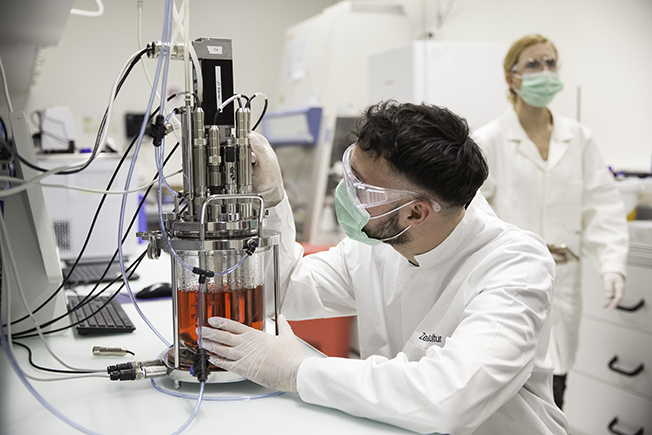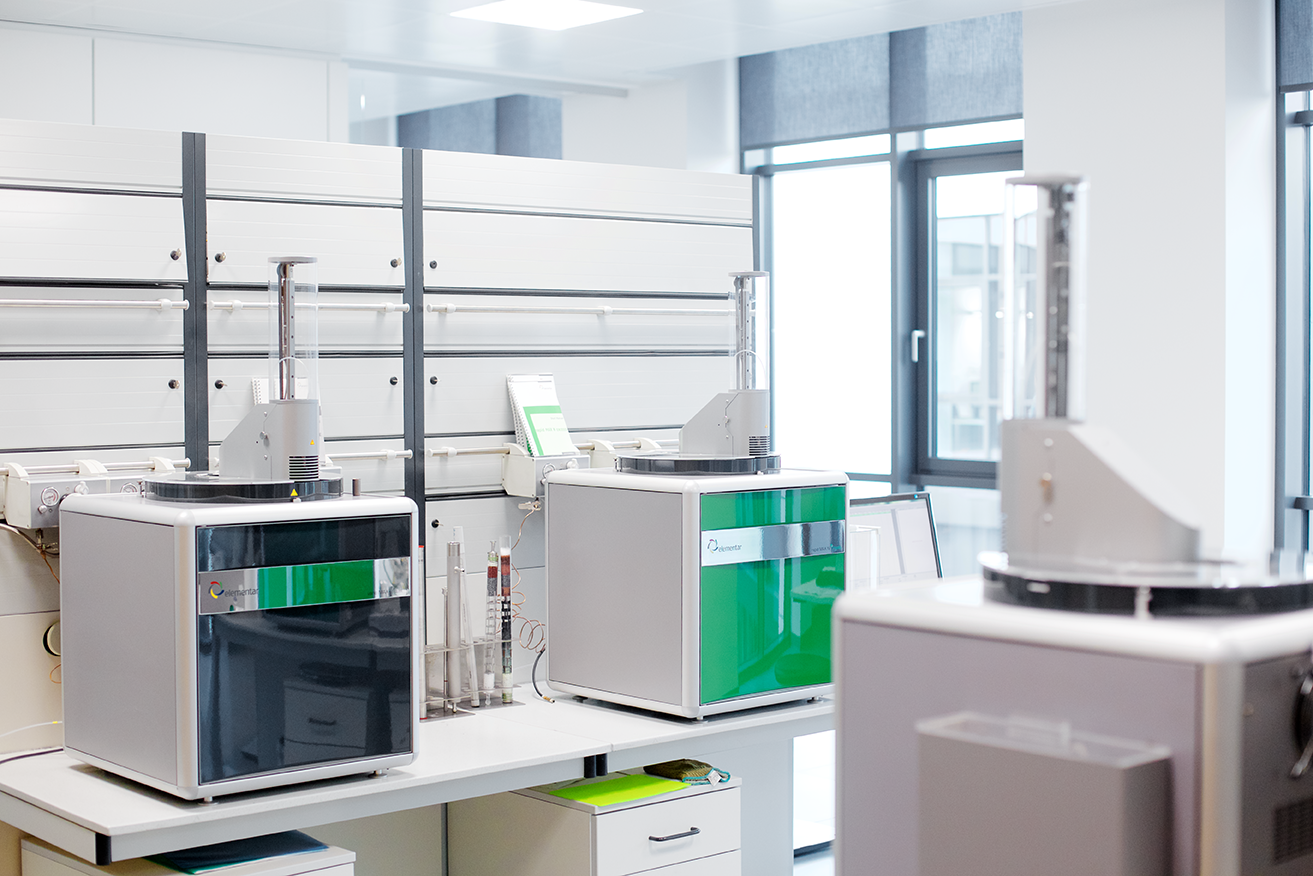

Why providing food-sector manufacturers greater options is enabling them to embrace the snowballing demand for non-dairy products
Ivor Lyons & Carla De Urrutia at ALT Dairy, explain how they spotted a market niche just waiting to be filled by their UHT, bulk-packed, alternative dairy options
Many of the entrepreneurs covered in these pages make the transition to the alternative proteins sector from successful careers elsewhere; a frequent tale we hear is of those who begin working in traditional animal-based industries but then ‘see the light’ and spend the rest of their career repenting for their previous unhealthy, unsustainable work. So, the path of Ivor Lyons and Carla De Urrutia makes a refreshing change: these two founders have shared a health-driven, non-animal-based business approach from the off. And their current baby, ALT Dairy, has spun-off from their initial mission working in the fruit and veg sector.

Detailing their origin story, Ivor Lyons, CEO of ALT Dairy, says, “We started up our other company, Jumpin’Juice Ltd, in 2003. We provide fruits and vegetables to the juicing and smoothie industry, which itself was a pretty nascent sector back then.” Following great success in this sector – fueled in part by the rapidly growing wellness trend that saw juice bars opening at a rapid rate four-and-a-half years ago – the small team at Jumpin’Juice decided to expand their horizons elsewhere. “We were supplying some companies with products such as purees and organic fruits, and they kept asking for large-sized packs of alternative dairy, which wasn’t available in the UK market,” Lyons recalls.
“With our experience across the supply chain, we said, ‘Okay, we’ll find it from somewhere else’. That plan rapidly segued to ‘Okay, we can’t actually find it,” Lyons laughs, “so let’s set up a production facility and make it ourselves! That is how ALT Dairy was launched.”
Food-service and contract manufacturers are being pushed to offer plant-based products due to the increased demand for allergen-free ingredients
Picking up the story, Carla De Urrutia, Head of Operations, details, “We’re now a successful B2B ingredient supplier for alternative dairy to the food manufacturing and catering industries. We have our existing facility in North London, UK, and we’re growing further by making partnerships with other facilities.”
Dream big
The alt dairy market is not exactly short on suppliers, but De Urrutia explains that size – specifically the abovementioned larger packs – is what matters here. “Many of our food-service customers were relying on one-liter TetraPaks: you can imagine the inefficiencies in both financial costs and labor when using large volumes of alt-dairy milks that are only sold in one-liter packs.”

De Urrutia also notes a problem these companies faced relating to concentration. “Food companies no longer need to rely on a 5% oat milk in a TetraPak; they can now use a 50% concentration in our 20-liter to 250-liter packs. Obviously, this is much more cost efficient in terms of transport, storage, and even packaging. You’re not needlessly transporting water around with concentration, either. So, if a customer needs to have, say, 5% cashew in a product, we’ll send in units at 20% concentrate. Then they just add water at the point of production.”
UHT not UPF
Lyons highlights the benefits its customers gain from ALT Dairy’s application of ultra-high-temperature (UHT) processing. “This extends the shelf-life considerably and, because of that, they don’t need to worry about any wobbles in the supply chain. UHT products are also microbiologically safer than other processing systems.” And he offers reassurance for those who automatically see an acronym relating to food processing and start worrying. “We always work to much higher standards of food safety than are required anyway,” he says. “But for some products it’s more of a high-temperature, flash-pasteurization process, rather than a full-blown UHT. It’s a safe process that is gentler than many other food processing methods. Our aim is to minimize any damage to the product while also achieving that very stable shelf life.”
In a nutshell
Of the company’s current product portfolio, it’s the oat milk, pistachio, and cashew concentrates that are the most popular. ALT Dairy is currently the only UK company supplying UHT cashew-based liquid compounds in large pack sizes (of 20 liters to 250 liters), and the team reports increasing demand for this product due to cashew’s use in a variety of applications, including alternative dairy cheeses, cheese sauces, and ice creams. De Urrutia observes that the landscape here is interesting for two reasons. “The new generation of consumers is changing the market; statistics suggest that by 2025 (only next year!), 50% of Gen Z will be meat-free. A whole load of trends are filtering through to the food industry at once, such as the health or wellness benefits many discover from going dairy-free, and the environmental benefits of removing cows from the food chain,” she states. “Secondly, against this backdrop, food-service companies such as contract manufacturers are being pushed – whether they like it or not – to offer plant-based products and alternatives to their usual dairy-based products.”

Lyons also notes that, despite any initial skepticism on their part, the food-service providers all see the merits in going dairy-free when it comes to tackling the issue of allergies. “The food-service companies we work with are saying that for products such as ice cream, for example, they’d prefer to go with a dairy-free formulation such as oat-based milk because of the zero allergens (obviously we’re not referring to products made with nut milks, here). As long as the taste and flavor profiles are the same, they’re happy to switch because they can then rule out any allergy risk for people who are consuming that product,” he states.
Economies of scale
Interestingly for a part of the alternative proteins marketplace, price parity here isn’t anywhere near the insurmountable hurdle it so often is elsewhere. Explaining ALT Dairy’s approach, Lyons says, “Dairy is a staple, and when a food company transitions to offering alternative options and they see the demand in their product increasing.”
Furthermore, he reveals that, “we keep our margins very tight because, obviously, when there’s a move over to alternative dairy versus dairy, it can be quite economical in certain formats”. The volumes the company is producing means it can try and price match conventional dairy from the get-go. “We tend not to quite get there, but we do get very close,” Lyons confirms. “But using our solutions means the food-sector clients save a lot of money on the concentration side, compared with traditional dairy, where you don’t get a concentrated product.”

De Urrutia predicts that this volume game will only increase in the coming years. On the operational side, she shares that ALT Dairy is looking to expand its initial UK focus to further afield. “We’re going to start supplying into the EU shortly. Because our products are plant-based (and we’ve also been organically certified across both our businesses since inception in 2003), Brexit hasn’t affected us much and there are lower regulatory requirements to face than for many other alternative protein products.” And she hints that with regard to expanding its product portfolio, ALT Dairy is particularly interested in two areas: “Seed milks are becoming popular because they’re quite economical and you get a very good fat content and nice frothing for barista-style solutions for coffee usage. We’re also keen to see who tackles the development of a viable alternative to casein (the addictive hormone in dairy milk) first.”
Lyons points out that whatever the end application, the ALT Dairy team will be on-hand to support any existing manufacturers entering into the market. “We’re an ingredient supplier; we want more people to enter the sector! And new players will come to us because we are established as the company that can supply them alternative dairy ingredients in the volumes they need to make a genuine impact on the market.”
For more information visit www.altdairy.com
If you have any questions or would like to get in touch with us, please email info@futureofproteinproduction.com


%20ILVO%202.jpg)

.png)

